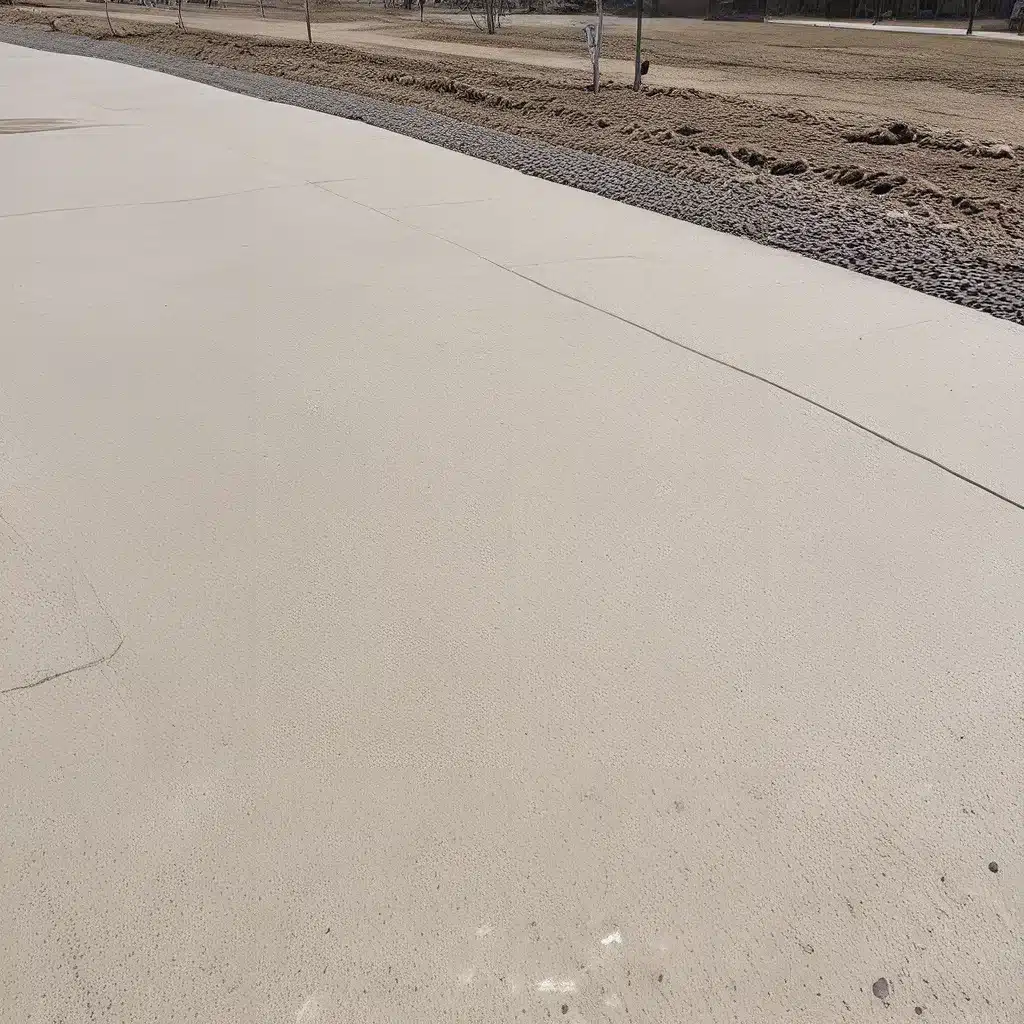
As the world grapples with the pressing challenge of climate change, the construction industry is stepping up to play a crucial role in driving sustainability. In Kansas City, concrete contractors are at the forefront of this movement, exploring innovative ways to reduce the environmental impact of their work and pave the way for a greener future.
Embracing Low-Embodied Emissions Concrete
One of the most significant contributors to the construction industry’s carbon footprint is the production of concrete, a material that is essential for a wide range of projects. However, the traditional manufacturing process of concrete is highly energy-intensive, resulting in significant greenhouse gas emissions. Recognizing this, Kansas City concrete contractors are now actively seeking out alternatives that prioritize low-embodied emissions.
The Federal Government’s Buy Clean initiative has been a driving force in this movement, promoting the use of construction materials with lower embodied emissions in federal procurement and federally funded projects. By leveraging the government’s massive purchasing power, this program is sending a strong signal to the market, encouraging manufacturers to invest in cleaner production methods and innovative materials.
Kansas City concrete contractors are responding to this call by partnering with local suppliers that offer low-carbon concrete options. These materials are produced using advanced manufacturing techniques that reduce the energy consumption and emissions associated with the extraction, production, and transportation of the raw materials. This includes the use of supplementary cementitious materials, such as fly ash and slag, which can significantly lower the carbon footprint of the final product.
Embracing Sustainable Pavement Solutions
In addition to concrete, the construction industry is also responsible for the production and installation of asphalt, another material with a significant environmental impact. Kansas City concrete contractors are addressing this challenge by exploring sustainable pavement solutions, such as pervious concrete and porous asphalt.
These innovative materials not only reduce the carbon footprint of the construction process but also provide additional environmental benefits. Pervious concrete, for example, allows water to percolate through the surface, reducing stormwater runoff and mitigating the risk of flooding in urban areas. Porous asphalt, on the other hand, helps to recharge groundwater supplies and minimize the need for traditional stormwater management systems.
By incorporating these sustainable pavement solutions into their projects, Kansas City concrete contractors are not only contributing to a cleaner environment but also enhancing the overall resilience of the city’s infrastructure, better preparing it to withstand the challenges posed by climate change.
Embracing Innovative Construction Techniques
Beyond the materials themselves, Kansas City concrete contractors are also exploring innovative construction techniques that can further reduce the carbon footprint of their work. One such approach is the use of modular construction, where sections of a building or structure are prefabricated off-site and then assembled on-site.
This method not only reduces waste and minimizes disruptions to the local community but also allows for more precise quality control and a tighter integration of energy-efficient systems. Kansas City concrete contractors are partnering with modular construction specialists to offer their clients a more sustainable and streamlined construction experience.
Additionally, Kansas City concrete contractors are embracing building information modeling (BIM) technology, which allows for the digital modeling of construction projects. By optimizing the design and planning phases, BIM helps to minimize material waste, optimize logistics, and enhance the overall efficiency of the construction process, leading to a smaller carbon footprint.
Fostering Workforce Development and Community Engagement
As Kansas City concrete contractors strive to reduce the environmental impact of their work, they are also recognizing the importance of engaging with their local community and investing in the development of a skilled workforce.
Through partnerships with local vocational schools and apprenticeship programs, these contractors are helping to train the next generation of concrete professionals, equipping them with the knowledge and skills necessary to implement sustainable practices. By nurturing a workforce that is passionate about environmental stewardship, Kansas City concrete contractors are ensuring that the momentum towards a greener future continues to build.
Furthermore, these contractors are actively engaging with their local community, educating homeowners and business owners about the benefits of sustainable concrete solutions. By demonstrating the long-term cost savings, improved durability, and reduced environmental impact, they are inspiring Kansas City residents to make informed choices when it comes to their construction projects.
Conclusion: Leading the Way to a Sustainable Future
As the world continues to grapple with the challenges of climate change, the construction industry in Kansas City is leading the charge towards a more sustainable future. Kansas City concrete contractors are embracing innovative materials, construction techniques, and community engagement strategies to reduce the carbon footprint of their work and pave the way for a cleaner, more resilient built environment.
By prioritizing low-embodied emissions concrete, sustainable pavement solutions, and workforce development, these contractors are not only safeguarding the planet but also positioning Kansas City as a leader in the transition towards a more sustainable and prosperous future. As the demand for eco-friendly construction solutions continues to grow, Kansas City concrete contractors are poised to lead the way, inspiring other communities to follow in their footsteps.
Visit Concrete Contractor Kansas City to learn more about our commitment to sustainable practices and how we can help you achieve your construction goals while minimizing the environmental impact.

